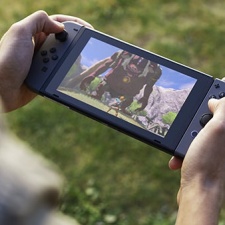Note: With the Nintendo Switch launching today, we've republished this opinion piece from October 2016.
It contextualises the Nintendo Switch's position in the market with the slowing sales of tablet devices and decline of tablet gaming.
It posits that Nintendo's newly-released Switch may be well-positioned to fill the gap that's formed.
Back in 2012, tablets were ascendant.
Worldwide tablet shipments had shot up 78.4% year-on-year to 128 million and market intelligence outfit IDC was confident that number would reach 352.3 million by 2017.
Instead, in recent years, the market has suffered a terminal decline. Shipments for 2015 were 206.8 million, down 10% from the previous year, and the downward trend has continued ever since.
In Q2 2016, tablet shipments fell again by more than 12% - marking the seventh straight quarter of decline for the sector.
Quite clearly, barring a miracle resurgence, we are some way off hitting that 352.3 million projection.
But the early optimism of market researchers can be forgiven. Tablets seemed to be the way the wind was blowing back in 2012.
The future of gaming
The mobile and console games industries seemed in agreement that these slates would have a significant role to play in the future of gaming.
"We believe tablets are the ultimate games platform," a little-known Finnish outfit called Supercell told PocketGamer.biz back in 2012 - before launching the all-conquering, tablet-optimised Clash of Clans later that year.
2012 was also the year that Microsoft unveiled its now-forgotten SmartGlass app for the Xbox 360, which allowed players to use their tablets to interact with certain games.
And guess what year Nintendo released its ambitious new console, the Wii U, with its tablet-inspired gamepad? You got it - 2012.
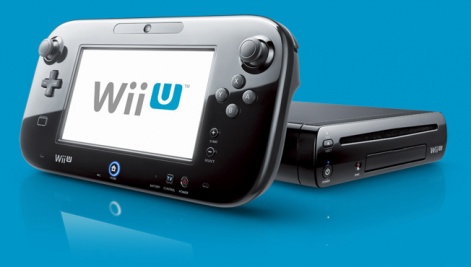
Fast forward four years, and all of these things have been and gone.
SmartGlass was a damp squib hardly anyone used and even fewer remember, the Wii U is Nintendo's worst-selling console ever (not counting the Virtual Boy) and Supercell has released Clash Royale in portrait mode with smartphones in mind.
RIP tablets, RIP tablet games
But as the tablet market continually dwindles towards extinction, so too does a certain kind of experience.
This excellent article by Jon Jordan highlights the full extent to which the decline of tablets has been felt in the design of mobile games, and it's more than just a switch from landscape to portrait.
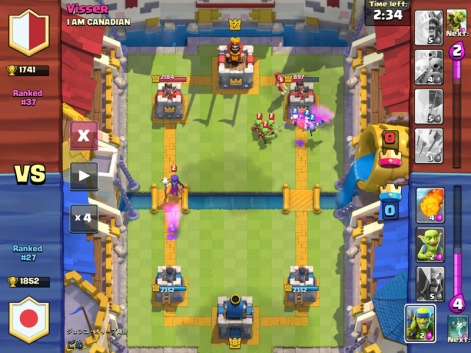
Designing for phones means designing for one-thumb gameplay, which results in a fundamentally different kind of game. It's a world in which the entire interactive area must exist on screen.
One-thumb gameplay results in a fundamentally different kind of game.
The odd Tinder-esque swipe or classic Twitter-style drag might work, but you can forget pinching to zoom or otherwise pawing at the edges of an expansive environment.
Clash of Clans would never have been brought into this world, that's for sure.
Better alternatives
The Wii U had a lot of trouble defining itself, not least the fact that many people didn't know what the hell it was supposed to be.
But with everything going on at the time, you'd think that Nintendo's console and its tablet-esque controller was perfectly pitched to a world hungry for these experiences.
As it turned out, though, its target audience was being perfectly well-nourished by what was already out there.
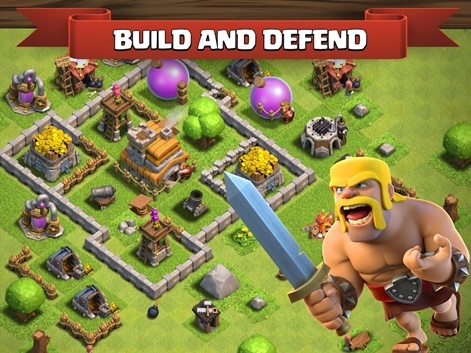
Tablet games and the rise of midcore provided a perfect next step for those Wii and DS owners who wanted something new, particularly given the Wii U's confusing handheld/console status.
Tablet games provided a perfect next step for Wii and DS owners.
It had neither the portability and sleekness of a good tablet, nor the power, third-party support and gaming prestige of its competing consoles.
Switching it up
But with the steady decline of what Newzoo terms the 'Floating Screen' - that is tablets and handheld consoles - and developers increasingly catering to smartphones, there's a growing opportunity.
There are still millions of tablet users, even if the market is in rapid decline. This is where the just-announced Nintendo Switch can take advantage. The system comes with detachable controllers for on-the-go gaming on its tablet-like screen. Though it's not yet known if this will be a touch screen.
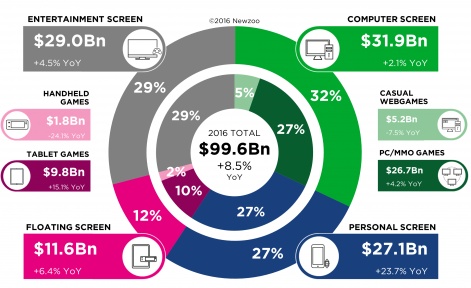
If Nintendo can persuade them that the Switch can offer a better experience than the mobile-first games they're currently getting, that's a strong and clear reason to buy one - something the Wii U always lacked.
Nintendo's also telling fans of big triple-A IPs that they can play their favourite blockbuster games on the go. Just look at the teaser trailer to see how Skyrim and The Legend of Zelda: Breath of the Wild take centre stage. It's targetting both that tablet market with a more powerful system and a standard controller setup, and those console players who want to play their games anywhere, anytime.
It's also worth considering that the Switch is to be the next-gen Nintendo system - meaning that as 3DS sales continue to naturally drop off, Switch won't be cannibalised by its own stablemate in the same way the Wii U was.
Multitasking is possible
From Wii U's failure, some have drawn the conclusion that Nintendo's mistake was its hybridity - and that it's making the same one with the take-anywhere Switch.
I'm not so sure, though. In fact, I believe that consumers are accepting of hybridity as long as it offers genuine utility.
Indeed, a glimmer of hope in the otherwise bleak tablet market is the forecast for detachable, PC-laptop hybrid devices such as Microsoft's Surface range, which are expected to power the entire tablet market to positive growth once again in the coming years.
There's a gap forming in the tablet market. If Nintendo nails this one, the potential is there for a Wii-level success as Nintendo targets the next blue ocean.
But let's not get ahead of ourselves. The target for Nintendo should be to get back on track with its console business after the disastrous Wii U, and this time the signs are a lot more positive.

